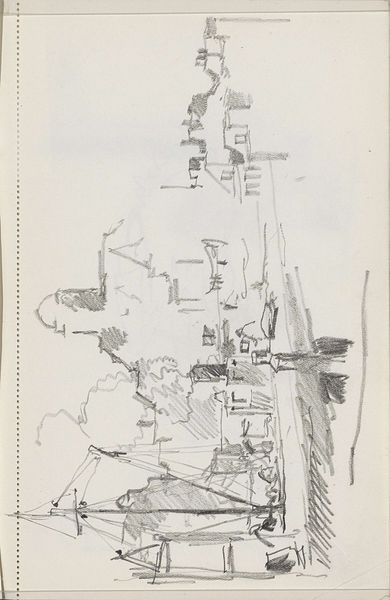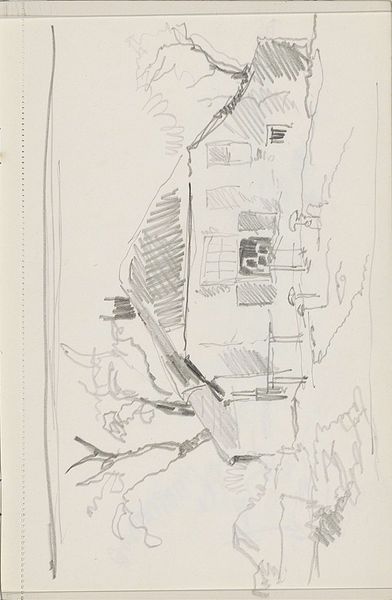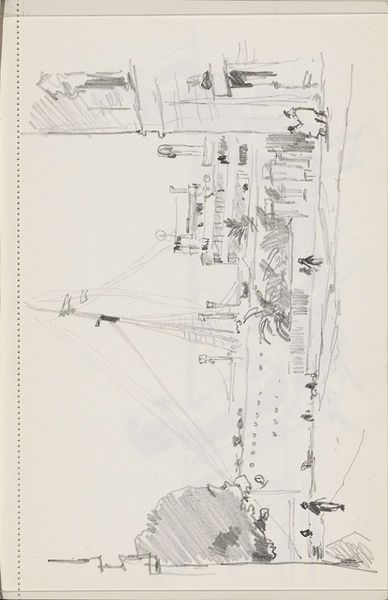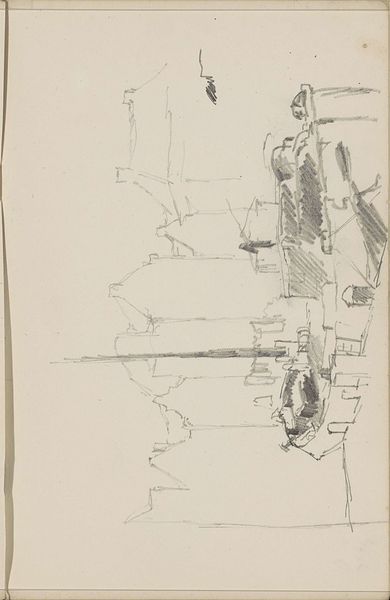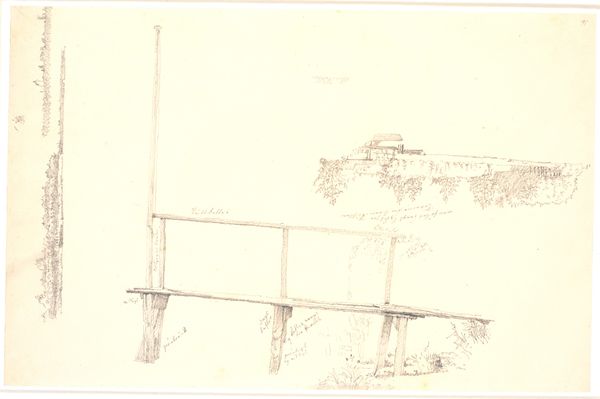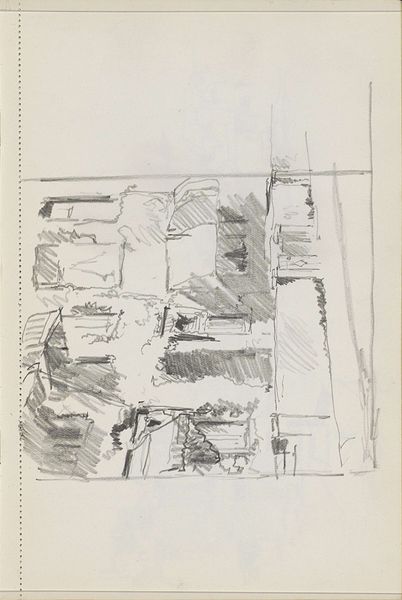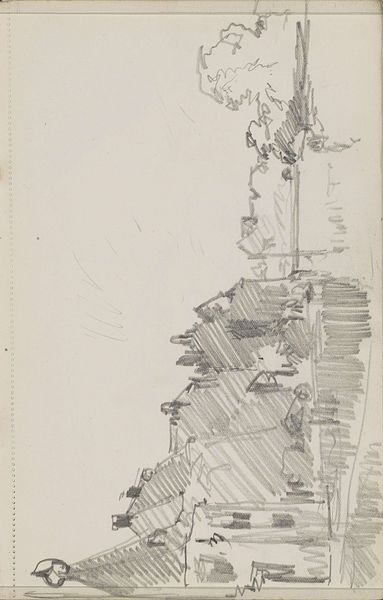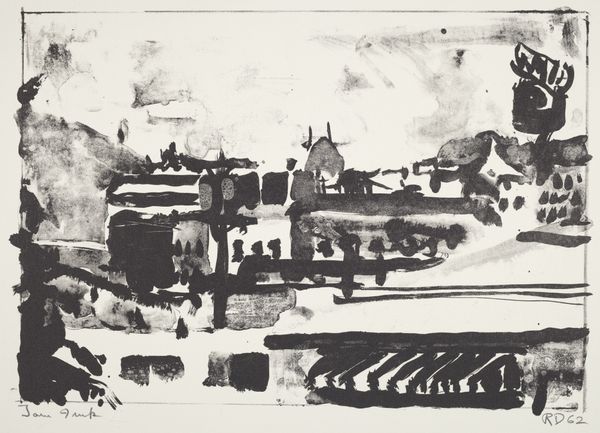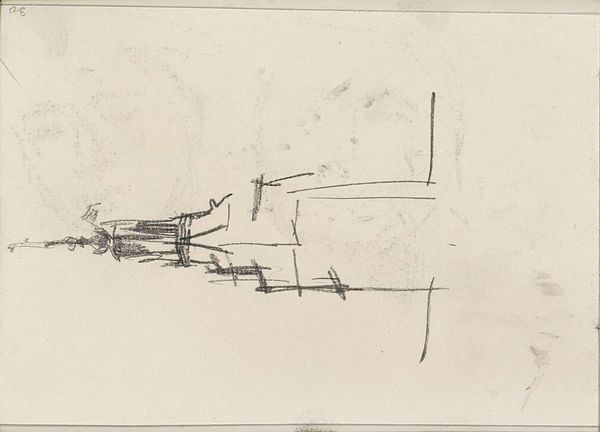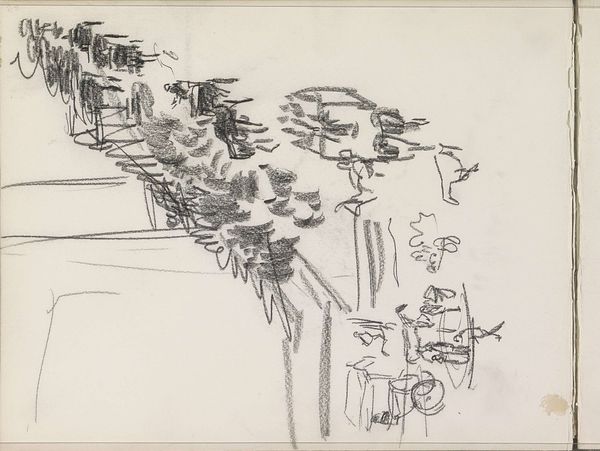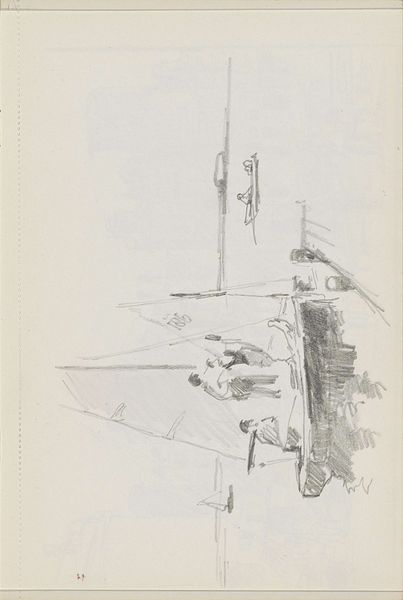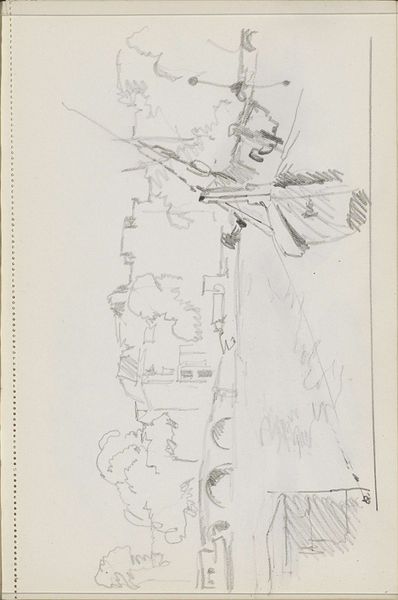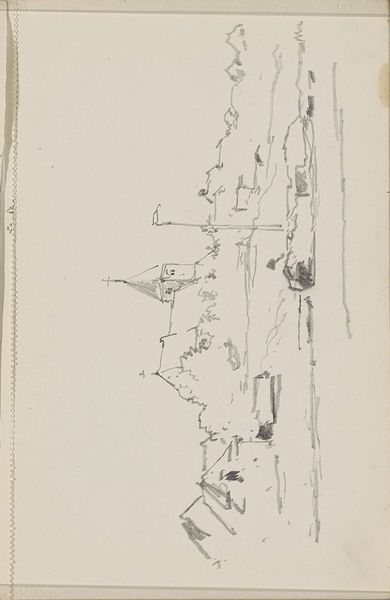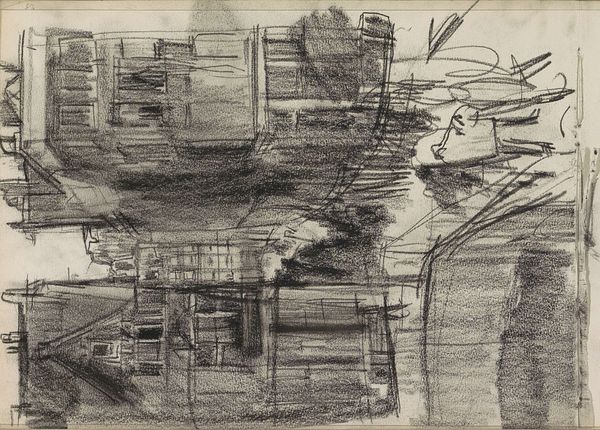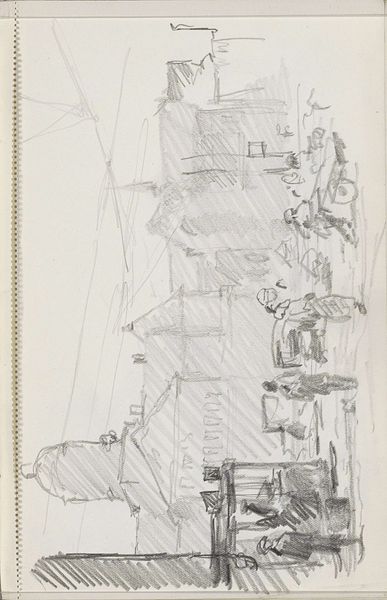
drawing, ink
#
drawing
#
landscape
#
ink
#
abstraction
#
line
#
cityscape
#
modernism
Dimensions: 69 x 69 cm
Copyright: Creative Commons NonCommercial
Editor: So, this is Alfred Freddy Krupa's "An old merchant house on the river Kupa," created in 1993 using ink on paper. I’m struck by how minimal the lines are, yet they evoke such a strong sense of place. What stands out to you when you look at this work? Curator: Immediately, I'm drawn to the visible labor and process. The stark ink lines emphasize the act of drawing itself. Consider the cheap materials; it is on paper, and done in ink. This points to accessibility, to art making outside the confines of formal academies. Krupa’s quick strokes democratize the image. It isn’t about perfectly rendering a cityscape, it’s about capturing a feeling of a place rapidly. Editor: I see what you mean about accessibility. I guess the choice of medium and style means it's about conveying an impression quickly and economically. Do you think the "modernism" tag is relevant here? It doesn't scream cubism or surrealism to me. Curator: Modernism, in this context, isn’t about a specific stylistic dogma. It's about disrupting established traditions in art production. The lack of precise detail, the almost calligraphic quality, rejects the idea that art needs to be painstakingly rendered to be meaningful. He can be interpreted as rejecting consumerist excess. What might it suggest about Krupa's views of the art world at that moment in time? Editor: I hadn't thought about it that way! It's like he's making a statement with every brushstroke...or perhaps a statement by forgoing several. Now I see how the very creation of the drawing is intertwined with a larger cultural context. Curator: Precisely. The drawing itself is a product and a reflection of a certain moment and the available means to produce and share such art. It invites us to rethink what constitutes "art" and who gets to make it. Editor: That's a very insightful perspective, focusing on not just *what* is depicted, but *how* it's depicted and what that *how* represents about production. I will remember to focus on all elements, when they matter in themselves! Curator: Glad I could help! Focusing on material conditions is always productive!
Comments
No comments
Be the first to comment and join the conversation on the ultimate creative platform.
